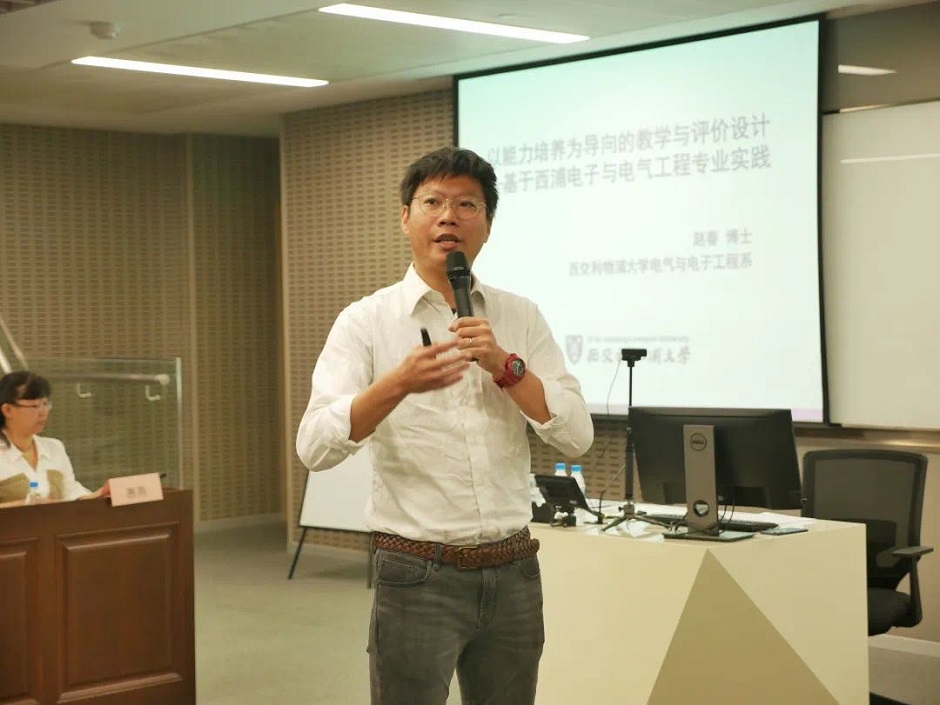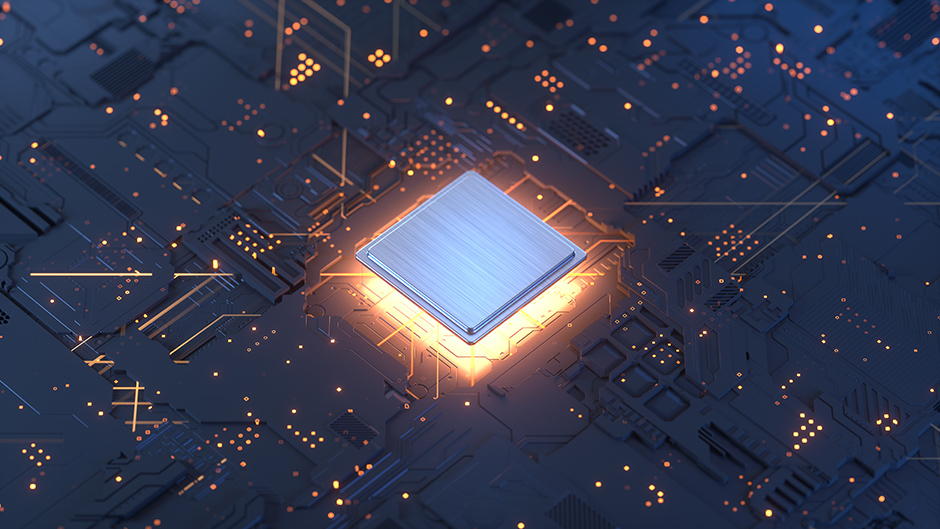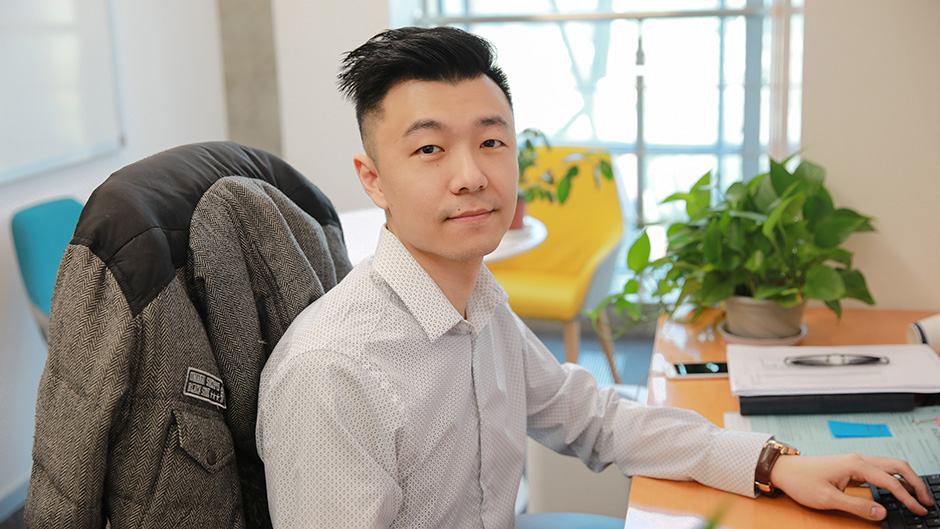15 Nov 2021
Integrated circuits (IC) have become the beating heart of today’s digital world. This technology’s advent has paved the way for devices such as mobile phones, computers, televisions, and other intelligent devices. And IC technology continues to advance and change the world.
An expert on recent advances in IC, including future developments with artificial intelligence, will speak 19 November at this week’s XJTLU Online Open Week. The research of Dr Chun Zhao of the Department of Electrical and Electronic Engineering at Xi’an Jiaotong-Liverpool University in IC design and technology has earned him wide recognition. His research focuses on analysing the reliability of semiconductor materials and devices. (Billions of interconnected semiconductor devices make up an integrated circuit.)
In 2019 and 2021, he served as the publication chair of the 17th and 18th Institute of Electrical and Electronics Engineers International Conference on IC Design and Technology. The conference is one of the biggest annual conferences in the field of integrated circuits.
In September 2021, Dr Zhao was invited to speak and share his research findings at the 23rd National Semiconductor Physics Conference, one of the biggest national conferences in the field.

Emulating the human brain
Dr Zhao says in the age of AI – where the vast amount of data processing required challenges traditional processors – future devices need to mimic a human brain’s processing capacity.
“While modern computers generally perform well, human brains can easily outperform them in some complex, unstructured tasks, such as pattern recognition and feature extraction,” he said.
"This is because of synapses – the structures in our brains that provide a communication pathway for neurons to pass signals on to other neurons. These are crucial to the brain's computing power, allowing the brain to multitask in a highly fault-tolerant, and energy-saving manner.
“Like many scientists, our research is inspired by the working of the mind and whether we can find a way to replicate these complex human systems using technology.”
“Our research looks at ways we might be able to develop low-powered AI chips with autonomous learning and other cognitive functions,” he said. “This type of technology has the potential to take us to the future that sci-fi films depict, where super robots have artificial ‘human’ brains."

Diving into the deep sea
Dr Zhao’s most recent publication is an article in Advanced Functional Materials by Wiley-VCH GmbH, Weinheim. If further developed, these semiconductors will be able to process larger amounts of data at a higher speed while consuming less energy, which could be applied to neuromorphic computing and artificial visual systems.
“My research field integrates artificial intelligence, microelectronics, bionics, and neuroscience,” he says. “Our department, and our university as a whole, advocates interdisciplinary research, and it allows me to innovate new IC designs.
Working in a field making cutting edge advances gives researchers the chance to examine new territories, Dr Zhao says.
“One thing I always remind my students and myself—what we are doing now is like diving into the deep sea, where no one has been before. No one knows how deep it is or how many treasures there are,” he says. “As scientists, it’s our responsibility to explore the unknown.”

Reaching for the crown jewel
Dr Zhao takes pride in his research. “IC is the crown jewel of manufacturing,” he says.
Being a strategic priority, the IC industry in China has witnessed rapid development during the past five years.
“China has become the world’s fastest-growing IC market. We used to rely on imports, but now we strive for self-sufficiency. With the goal of sourcing semiconductor supply domestically, the market has a great potential for even more growth,” Dr Zhao says.
“Government funding is another driving force. The IC industry consists of design, manufacturing, packaging and testing. All these sectors are powered by state-backed funds. For example, in 2014, the China Integrated Circuit Industry Investment Fund was established and it raised RMB 140 billion for its first fund. In 2015, the government announced the industrial policy ‘Made in China 2025’, which aims to lift the domestic semiconductor production.”
His research also benefits from his global perspective.
Dr Zhao obtained his PhD degree from the University of Liverpool in 2014. After graduation, he worked as a senior research engineer in Nano and Advanced Materials Institute, an organisation specialising in technology commercialisation. In 2017, he decided to return to academia full-time and joined XJTLU.
“Most of my colleagues, including myself, have overseas experience. We bring back the most advanced knowledge in the industry, and we conduct research at its forefront,” he says.
To hear about the research and experience of Dr Zhao and experts in other fields, visit www.xjtlu.edu.cn/open-week-virtual. The XJTLU Online Open Week, 16-20 November, features opportunities to chat with counsellors, join a virtual tour, and hear live talks over Zoom.

By Xinmin Han
Edited by Patricia Pieterse, Tamara Kaup
Photo by Dr Chun Zhao
15 Nov 2021
RELATED NEWS

Novel transmission line boosts integrated circuit performance
The integrated circuit, also known as a microchip, is the "brain" of all intelligent devices. As smart technology continues to advance and become an indispen...
Learn more

XJTLU contributes to Suzhou’s innovation ecology
“China now produces some of the most advanced AI-powered software in the world,” said Dr Chun Zhao (pictured below) from the Department of Electrical and Ele...
Learn more

Enabling efficient production of better environmental gas sensors
From smoke alarm devices in public places and formaldehyde gas detectors in residential property, to the warning systems used in detecting dangerous industri...
Learn more








